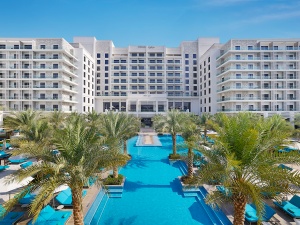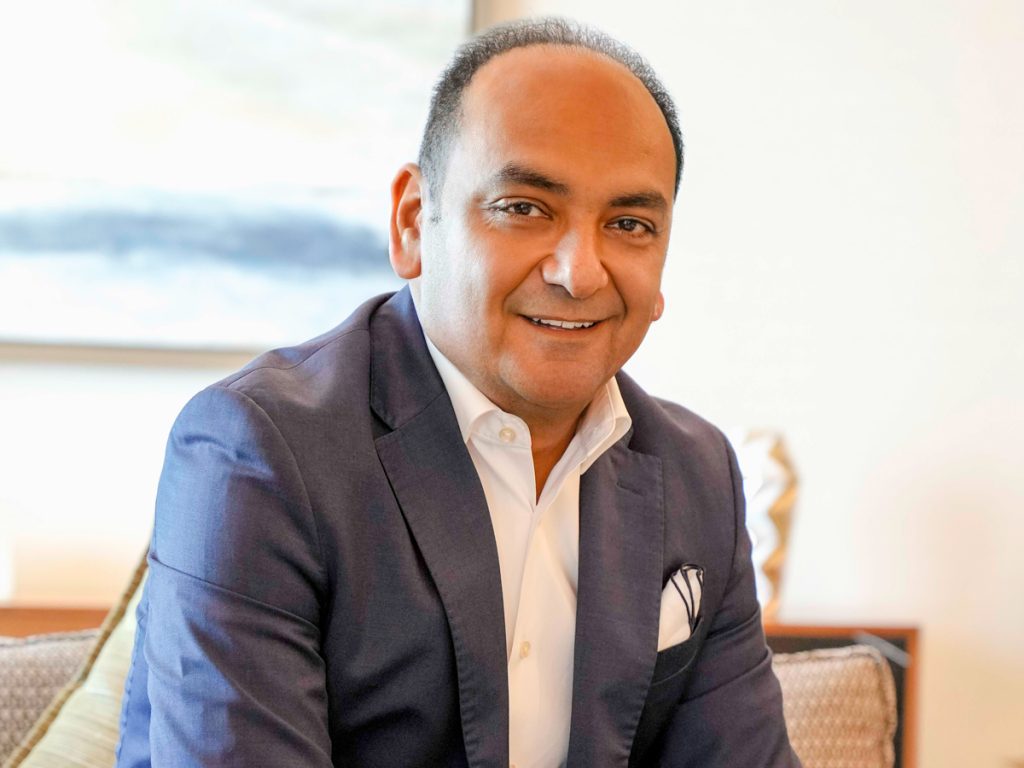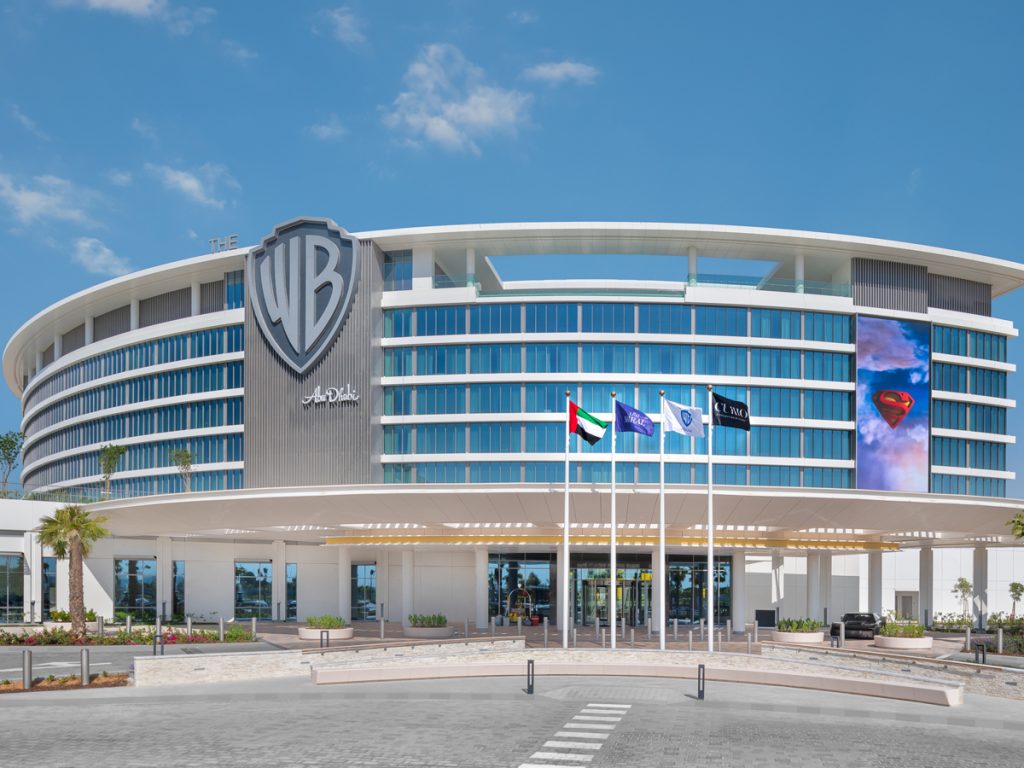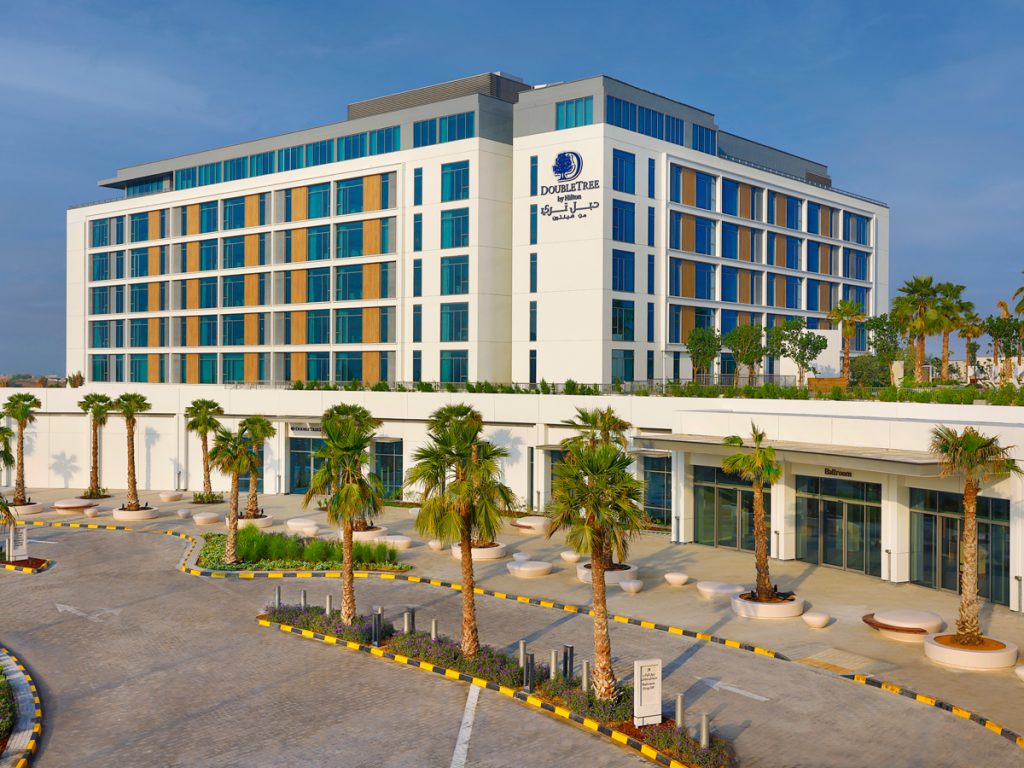How Hilton’s Yas Island properties are championing sustainable hospitality

When it comes to sustainability in hospitality, there is a lot of talk of what to do, how to do it and how much it will cost to make a difference.
However, few hotel groups and properties are displaying meaningful action like Hilton and, in Abu Dhabi specifically, the Yas Island properties under Nader Halim’s leadership.
Halim is cluster general manager for Hilton Abu Dhabi Yas Island, The WB™ Abu Dhabi, Curio Collection by Hilton, and DoubleTree by Hilton Abu Dhabi Yas Island Residences.
After just one year in the role, his efforts towards sustainability have already made a big impact, aligning with Hilton’s Travel with Purpose 2030 Goals.
We caught up with the GM to discuss these initiatives.

ADVERTISEMENT
Water conservation
Hilton Abu Dhabi Yas Island, the 545-key property on Yas Bay waterfront, has gone ‘plastic-water-bottle-free’. In their place are six strategically placed water stations throughout the premises, allowing guests to refill their own bottles.
The stations generate 390l of pure, drinkable water per day and have dispensed an average of 48,000l each.
Halim adds: “Beyond addressing single-use plastics, water conservation remains a top priority. The properties have implemented several innovative measures to reduce water consumption significantly.
“Taps throughout the facilities are equipped with fitted aerators and special showerheads, mindfully designed to limit water flow without compromising water pressure.”
As a result, there has been a remarkable 37 percent reduction in water consumption, reducing the flow rate from 12l per minute to a more efficient 7.5l per minute.
Hilton Abu Dhabi Yas Island has also implemented a specialised condensation system that repurposes the condensed water collected from air conditioning units in guest rooms. Instead of going to waste, all drained water is collected in a separate tank and repurposed for irrigation purposes.

Local sourcing and tackling food waste
The culinary team at Hilton Abu Dhabi Yas Island sources produce from within a 50-mile radius, promoting community support and reducing the hotel’s carbon footprint.
The team has also planted a variety of fruit trees as part of the ever-growing Chef’s Garden, with views of mango, fig, lemon, chikoo, pomegranate and guava trees from guest balconies.
“There are plans to plant more seasonal produce, so guests can enjoy fresh fruits, fruit juices, and delicacies prepared with the harvested produce year-round,” Halim shares.
Another exciting sustainability project is also in the works. As an initiative to support the ecosystem on Yas Island, 25 beehives will be housed at the hotel and guests will be able to enjoy honey from them in the hotels’ outlets.
“Winnow’s AI system has been installed in the hotels’ main kitchen, staff cafeteria, and banquet kitchen, and helps the culinary team identify the type and quantity of food wasted,” Halim highlights.
The teams at all of the GM’s hotels have implemented several measures for food waste elimination, including partnering with Winnow to report, manage, and reduce food waste across all F&B operations.
Hilton Abu Dhabi Yas Island is one of six pilot hotels to test this system. Through daily reporting, the property has managed to reduce food waste by 20 per cent.

Both Halim’s hotels have solar panels installed on the rooftop to power the domestic water system, which has resulted in saving up to 46,000 kwh per month, which is equal to 900 tonnes of co2 emissions (approximately 250 cars).
To reduce energy consumption, the hotels also use an automated light control system in public areas that adjusts the lighting according to the time of the day.
Halim notes that the hotels use 100 per cent LED bulbs, and a Guest Room Management System (GRMS) “allows the engineering team to monitor and control the AC temperatures when guests are out of their rooms.”
Meet with Purpose
Hilton Abu Dhabi Yas Island is the flagship property for MICE business in the cluster and on Yas Island. The properties offer clients the ‘Meet with Purpose’ programme to help them create meaningful change in both the attendee experience and within the communities they visit.
The Meeting Impact Calculator on LightStay, Hilton’s proprietary, award-winning platform, “calculates the property’s consumption data to create a report that shows the estimated carbon, water, energy, and waste from a meeting or event,” Halim explains.
Based on the results, Hilton offsets the carbon emissions associated with the event by procuring carbon offset credit from the South Pole Group.
Mangrove planting
Hilton’s Yas Island cluster has an ongoing partnership with Jubail Mangrove Park, the first self-contained natural, educational, and leisure destination of its kind in Abu Dhabi. Halim notes that the hotel cluster team members have participated in a series of activities, including mangrove clean-ups, mangrove training sessions, and mangrove planting at the park. By February 2023, 726 mangrove trees were planted at Jubail Mangrove Park. These sustainability initiatives reflect Hilton’s commitment to responsible hospitality, aligning with global sustainability goals.
Source : Hotelier Middle East

